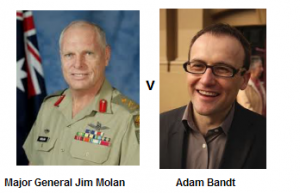History and Helplessness: Mass Mobilization and Contemporary Forms of Anticapitalism by Moishe Postone (pdf 18pp)
This article is an analysis of the reasons behind the malaise of the Left which has in common some of the themes discussed at this site as well as raising some new angles
For example, the following quote outlines the superficiality of the reflexive anti-Americanism of many on the “left” in response to the 9/11 attacks:
“Let me elaborate by first turning briefly to the ways in which many liberals and progressives responded to the attack of September 11. The most general argument made was that the action, as horrible as it may have been, had to be understood as a reaction to American policies, especially in the Middle East. While it is the case that terrorist violence should be understood as political (and not simply as an irrational act), the understanding of the politics of violence expressed by such arguments is, nevertheless, utterly inadequate. Such violence is understood as a reaction of the insulted, injured, and downtrodden, not as an action. While the violence itself is not necessarily affirmed, the politics of the specific form of violence committed are rarely interrogated. Instead, the violence is explained (and at times implicitly justified) as a response. Within this schema, there is only one actor in the world: the United States.
This sort of argument focuses on the grievances of those who carry out such actions without engaging the framework of meaning within which those grievances are expressed. The actions that flow from those meanings are taken simply as expressions of anger, however unfortunate. Such arguments neither interrogate the understanding of the world that motivated this violence nor critically analyze the sort of politics implied by violence directed intentionally against civilians. Consequently, such arguments can become implicitly apologetic rather than political; they make little attempt to understand the strategic calculations involved — not so much of the bombers as of their handlers — and ignore issues of ideology. It is a serious error, for example, to interpret the felt grievances underlying a movement like al-Qaeda in narrow terms, as an immediate reaction to American policies and Israeli policies. This ignores too many other dimensions of the new jihadism. For example, when Osama bin Laden speaks of the blow inflicted on the Muslims eighty years ago, he is not referring to the founding of the state of Israel but to the abolition of the caliphate (and, hence, of the purported unity of the Muslim world) by Ataturk in 1924 — long before the United States was involved in the Middle East and before Israel was established. It is noteworthy that the vision he
expresses is more global than local, which is one of the salient features of the new jihadism, in terms of both the struggles it supports (transforming them into manifestations of a single struggle) and its driving ideology. And an important aspect of the global character of that ideology has been anti-Semitism.
Addressing anti-Semitism is crucially important when considering issues of globalization and antiglobalization, even if it can be subject to misunderstandings because of the degree to which the charge of anti-Semitism has been used as an ideology of legitimation by Israeli regimes in order to discredit all serious criticisms of Israeli policies. It is certainly possible to formulate a fundamental critique of those policies that is not anti-Semitic, and, indeed, many such critiques have been formulated. On the other hand, criticism of Israel should not blind one to the existence today of widespread and virulent anti-Semitism in the Arab/Muslim world. As I will try to elaborate, anti-Semitism poses a very determinate problem for the Left.”
Continue reading ‘Postone’s analysis of the malaise of the “left”’




Recent Comments